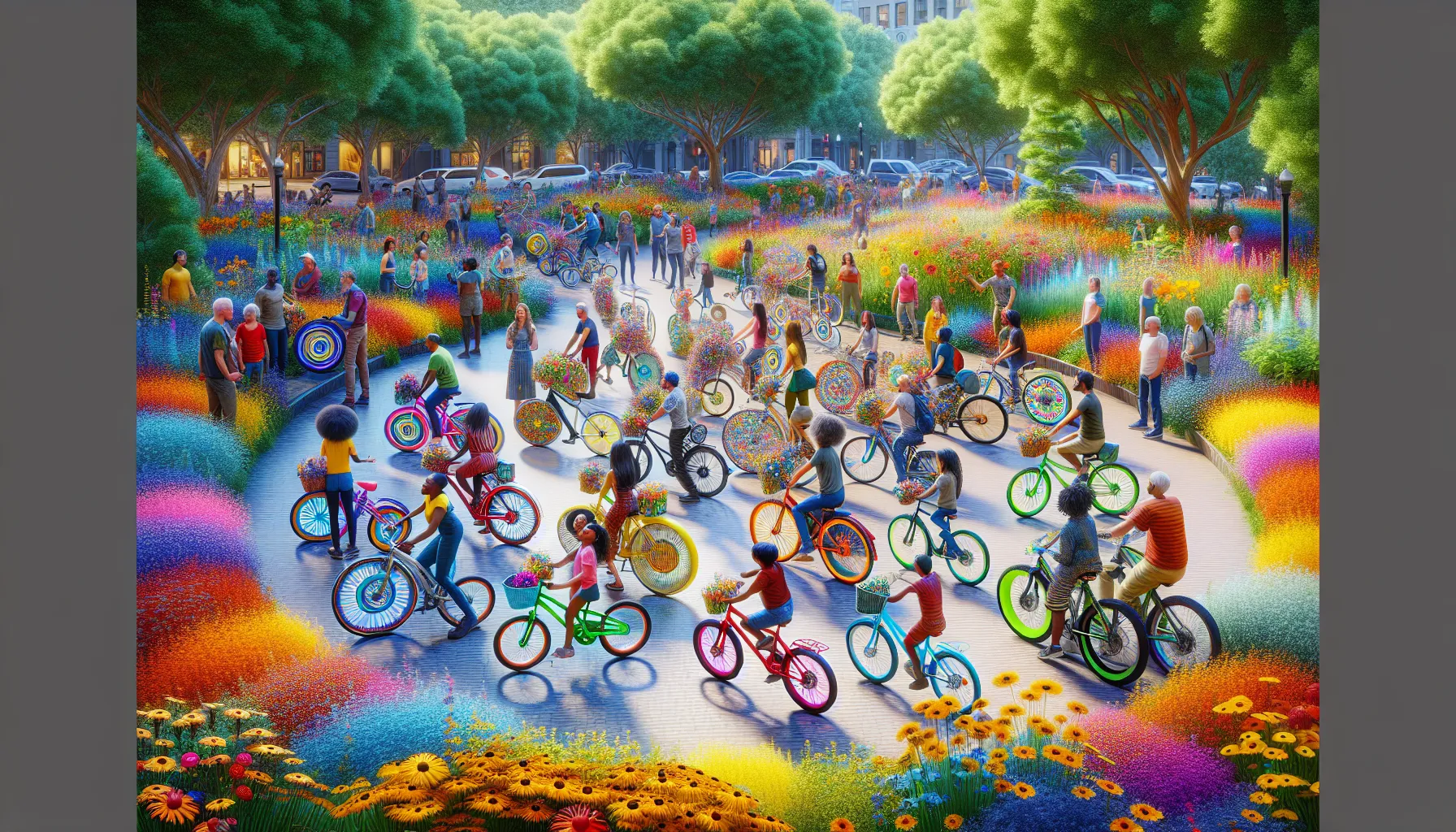When Is Bicycle Day? Discover the History and Significance of April 19
Key Takeaways
- Bicycle Day is celebrated annually on April 19, commemorating Swiss chemist Albert Hofmann’s first intentional LSD experience during a bicycle ride in 1943.
- This day marks a pivotal moment in scientific exploration, leading to decades of research into psychedelics and their effects on the mind, creativity, and perception.
- The term “Bicycle Day” originates from Hofmann’s iconic ride home, symbolizing the connection between physical and mental exploration.
- Celebrations often include activities such as cycling, artistic expression, learning about psychedelic history, and hosting discussions to honor its scientific and cultural impact.
- Bicycle Day highlights advancements in neuroscience, psychology, and mental health therapy, showcasing the ongoing legacy of Hofmann’s groundbreaking discovery.
Every year, there’s a special day that celebrates more than just two wheels and a frame—it’s Bicycle Day. But it’s not what you might think. While it sounds like a tribute to cycling, this day has a fascinating story tied to science, discovery, and a rather unusual bike ride.
I remember the first time I heard about Bicycle Day, and I was surprised it wasn’t about biking at all. It’s actually a nod to a groundbreaking moment in history, one that forever changed the way we understand the mind and perception. Curious about when it is and why it’s celebrated? Let’s dive in.
What Is Bicycle Day?
Bicycle Day marks the anniversary of April 19, 1943, when Swiss chemist Albert Hofmann intentionally ingested lysergic acid diethylamide (LSD) and experienced its effects while riding his bicycle home. This event is celebrated as a turning point in the scientific exploration of psychedelics. Hofmann’s journey became symbolic of discovery and the connection between mind, perception, and creativity.
The name “Bicycle Day” comes from Hofmann’s mode of transportation during this pivotal moment. It highlights the dual connection between a physical experience and the mental exploration initiated by LSD. The day is often recognized by scientific communities and enthusiasts interested in understanding consciousness and mental health therapy.
When Is Bicycle Day Celebrated?

Bicycle Day is celebrated annually on April 19. This date honors a pivotal moment in scientific history and its connection to mind-expanding discoveries.
The Significance Of April 19
April 19 marks the day in 1943 when Albert Hofmann first intentionally experienced LSD’s effects. The date is symbolic as it represents not just his groundbreaking journey home by bicycle but also the initiation of deeper exploration into human consciousness. Individuals who commemorate this day recognize its impact on research in psychology, neuroscience, and creativity.
Historical Context Of Bicycle Day
The term “Bicycle Day” originated from Hofmann’s unique experience of cycling home under the influence of LSD. At that time, Switzerland was rationing fuel due to World War II, making bicycles a primary mode of transport. While riding, Hofmann began noticing vivid changes in perception, which he documented in his research. April 19 later became celebrated as an acknowledgment of the profound scientific and cultural milestones that followed from this event.
Why Is Bicycle Day Important?

Bicycle Day holds historical and scientific significance due to its connection to Albert Hofmann’s groundbreaking LSD discovery. His ride on April 19, 1943, marked the first intentional experience with the substance, leading to decades of research into its potential effects on human thought, perception, and creativity. This event laid the foundation for exploring psychedelics within science, sparking interest in their therapeutic and cognitive applications.
Celebrating Bicycle Day recognizes the scientific milestones achieved from this moment. Innovations in neuroscience, psychology, and mental health therapy were influenced by Hofmann’s discovery, with researchers investigating how psychedelics like LSD impact brain function and treat conditions such as depression and PTSD.
It also serves as a cultural touchstone for enthusiasts of creativity and exploration. Psychedelics profoundly shaped perspectives in art, music, and personal growth, inspiring broader discussions about consciousness. For many, observing Bicycle Day is a way to reflect on the importance of scientific curiosity and its power to transform understandings of the mind and humanity itself.
How To Celebrate Bicycle Day

Bicycle Day offers a chance to reflect on creativity, scientific discovery, and the broader study of consciousness. I enjoy marking the day with meaningful activities that connect to its themes.
Activities For Enthusiasts
Exploring creative outlets, sharing knowledge, and connecting with others are great ways to celebrate.
- Cycling Adventures: Ride a bicycle in honor of Hofmann’s famous journey. Choose scenic routes or organize group rides to make the experience better.
- Art and Music: Create or enjoy art and music inspired by the themes of perception and creativity that relate to Bicycle Day. For example, abstract painting or listening to psychedelic music can be engaging.
- Learning Opportunities: Read books or watch documentaries about psychedelics and their history, such as “The Doors of Perception” by Aldous Huxley. These resources deepen understanding while celebrating the day.
Honor The Historical Event
Appreciating the historical and scientific relevance of Bicycle Day adds depth to its celebration.
- Host Discussions: Organize small gatherings to discuss Hofmann’s discovery and its impact on psychology and neuroscience. Sharing insights promotes collective learning.
- Visit Landmarks: If possible, visit places linked to Albert Hofmann’s life or early LSD research, like Basel, Switzerland. Such trips connect celebrations to the historical context.
- Support Research: Engage with or donate to institutes studying psychedelics for mental health therapy. Supporting ongoing research reinforces the legacy of Bicycle Day’s origins.
Conclusion
Bicycle Day is more than just a date; it’s a celebration of curiosity, discovery, and the incredible journey of understanding the human mind. It reminds us of the power of scientific breakthroughs and their ability to inspire creativity and new perspectives.
Whether you’re cycling, exploring art, or diving into the history of psychedelics, there are so many meaningful ways to honor this day. It’s a chance to reflect on the connections between science, consciousness, and the endless possibilities of the mind.
Frequently Asked Questions
What is Bicycle Day?
Bicycle Day is celebrated annually on April 19 to commemorate Swiss chemist Albert Hofmann’s first intentional experience with LSD in 1943. During this historic event, Hofmann rode his bicycle home while observing the effects of the substance, marking a pivotal moment in the scientific exploration of psychedelics.
Why is it called Bicycle Day?
The name “Bicycle Day” originates from Hofmann’s unique experience of cycling while under the influence of LSD. At the time, fuel shortages in Switzerland required bicycles for transportation, making his ride an iconic part of psychedelic history.
What is the historical significance of Bicycle Day?
Bicycle Day symbolizes a major milestone in scientific research. Hofmann’s discovery of LSD’s effects laid the foundation for decades of exploration into human consciousness, creativity, and potential therapeutic applications in mental health treatment.
How is Bicycle Day celebrated?
Bicycle Day is often celebrated through creative and educational activities. These include cycling, creating or enjoying art and music, watching documentaries about psychedelics, or hosting discussions about Hofmann’s impact on science and mental health.
Who was Albert Hofmann, and why is he important?
Albert Hofmann was a Swiss chemist known for synthesizing LSD and exploring its effects. His groundbreaking journey on April 19, 1943, is considered a catalyst for research into psychedelics, impacting psychology, neuroscience, and creativity.
What is the connection between psychedelics and creativity?
Psychedelics like LSD, as explored by Hofmann, are believed to enhance perception and inspire innovative thinking. Many artists, musicians, and researchers attribute breakthroughs to the mind-expanding effects of these substances.
Is Bicycle Day only about LSD?
While Bicycle Day specifically honors Hofmann’s LSD experience, it represents broader themes of scientific curiosity, consciousness exploration, and creativity. It also highlights the importance of psychedelics in mental health and neurological research.
Are there global events to celebrate Bicycle Day?
Yes, enthusiasts worldwide recognize Bicycle Day through events like conferences, workshops, and creative collaborations that focus on the history, science, and cultural impact of psychedelics.
How can I learn more about Bicycle Day and its themes?
You can explore books, documentaries, or online resources about Albert Hofmann, the history of LSD, and its role in science and culture. Educational events and discussions provide additional insights into the day’s significance.
Why is April 19 specifically chosen as Bicycle Day?
April 19, 1943, marks the exact day Hofmann intentionally ingested LSD and experienced its effects while riding his bicycle home. This historic date has since been celebrated as a turning point in psychedelic discoveries.